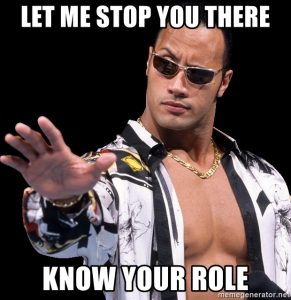The St. Louis Cardinals baseball team is under investigation by the FBI and Unites States Attorney’s Office in Houston, Texas for allegedly hacking an Astros player database. The New York Times reports that FBI and Department of Justice officials have evidence that Cardinals officials tapped into a database created by a current Astros exec and former Cardinals exec. According to the Times report, the database contained information on player statistics, scouting information, and internal discussions about players, trades, and other proprietary information. Thus far, both the Cardinals and Astros have been served with subpoenas but no formal charges have been returned against the Cardinals officials responsible for the breach. It is believed that Cardinals officials “gained access to the Astros’ database by using a list of passwords associated with Astros general manager Jeff Luhnow dating to his tenure with the Cardinals from 2003 until he left for Houston after the 2011 season,” according to ESPN reports. Surprisingly, these databases were allegedly accessed using this information from the homes of the Cardinal executives involved.
While this incident is being compared immediately to the Spygate scandal involving the alleged videotaping by the New England Patriots of opponents’ practices, under the surface there is potential that this incident could have far more severe implications through the federal criminal justice system. 18 U.S.C. 1030(a)(4) makes it a federal crime for anyone to knowingly and with intent to defraud, access a protected computer without authorization…. and by means of such conduct further the intended fraud and obtain anything of value. One potential issue that could be raised by a federal criminal lawyer is the element requiring something of “value.” In essence, the question would be is there a value that can be said to be attached to a baseball team’s database compiling information important to the game as it’s played on the field? I would think a federal prosecutor would answer in the affirmative and would consider the information accessed to be congruent to a major corporation’s trade secret. 18 U.S.C. 1839 defines a trade secret, in relevant part, as business information, tangible or intangible, that the owner has taken a reasonable measure to keep secret, and the information derives independent economic value, actual or potential, from not being generally known to, and not being readily ascertainable through proper means by the public. Bringing this all together, under this theory I believe the federal prosecutor would argue that this information is a trade secret, value of which is in the potential for the Astros to properly scout and prepare for their opponents in order to win and ultimately, very likely be more profitable. Essentially, if there is any way the information accessed could contribute to value, it could very likely be considered a trade secret. Conversely, I think a Federal criminal attorney could argue to a jury that there is no way to assign a value to the information as the leap from the information accessed to actual profitability of the team is too far to make it a legitimate trade secret. In other words, what was accessed was not the recipe for Coca Cola or Chic Fil A’s delicious chicken sandwiches. 18 U.S.C. 1030(a)(5)(c) criminalizes the intentional access of a protected computer without authorization, and as a result of such conduct, causes damage and loss. I believe the same argument for both sides would apply here.
What about the good old sweeping charge of wire fraud? Generically, government must prove beyond a reasonable doubt that a defendant (1) used either mail or wire communications in the foreseeable furtherance, (2) of a scheme to defraud, (3) involving a material deception, (4) with the intent to deprive another of, (5) either property or honest services. Bingo! Yet again, the federal prosecutor’s best friend makes a conviction a little easier.
 Tampa Criminal Lawyer Blog
Tampa Criminal Lawyer Blog




